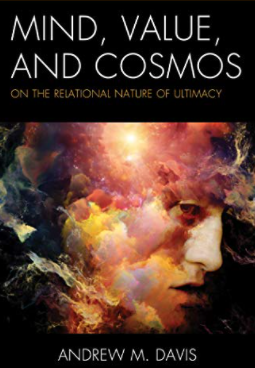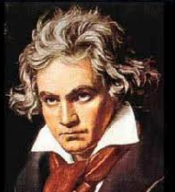Dear WesleyNexus, Colleagues,
The human mind. Values. Relationships. And what it all has to do with ultimacy and our Creating God…
This month’s issue of the WesleyNexus newsletter couldn’t be more timely. As I write, the gubernatorial race in my state is heating up. It’s election season again and, once again, the deep divisions in our society are being laid bare.
I hope you can join me this Tuesday, October 12th, for Why Do We Hate? Understanding the Origins of Human Conflict. This webinar is hosted by our friends at The Institute on Religion in an Age of Science (IRAS). Perhaps if we can understand the roots of human conflict we can begin to uproot it from our species? While this webinar is free, registration is required, so be sure to check out the details below.
In this issue you also will find…
- Upcoming webinar Why Do We Hate? Understanding the Origins of Human Conflict hosted by IRAS;
- Mind, Value, and Cosmos: On the Relational Nature of Ultimacy by Andrew M. Davis;
- Can Religion Give You PTSD? Meet the “exvangelicals” seeking therapy for religious trauma by Stephanie Russell-Kraft;
- Is God More Like Ella Fitzgerald or Ludwig Van Beethoven? by Vance Morgan; and
- Summaries of recent webinars you may have missed.
With you on the journey,
Jennifer Secki Shields, on behalf of the WesleyNexus Team
***********************************************
Upcoming Events

Why Do We Hate? Understanding the Origins of Human Conflict
October 12, 2021, 5:00 PM ET via ZOOM
Hosted by The Institute on Religion in an Age of Science
In this month’s Webinar, IRAS will host Dr. Michael Ruse to discuss “Why Do We Hate? Understanding the Origins of Human Conflict,” a title to be published by Oxford University Press in its Spring 2022 Collection. Says Ruse, “Here is the paradox. Humans are successful because they are a social species. Compared to other mammals, they are not particularly fast, not particularly strong, not particularly agile. But they do work well together. Yet, they are also a hating species. Non-stop wars – WWI, WWII, Korea, Vietnam — and vile prejudice – foreigners, class, race, sexual orientation, religion, Jews, women. How do we move forward? Two clues. One. Until 10,000 years ago, we were hunter-gatherers. Then came agriculture and a whole new set of problems. We are trapped in Stone Age skulls in a modern world. Two. Religious and secular folks agree that to do the right thing is to do the natural. Comforting a crying child is natural and is right. Pushing little old ladies under a bus is unnatural and wrong. We now know that there was no war and little prejudice in the Pleistocene (which ended around 12,000 years ago). They were not natural. Why go to war? Why harbor a prejudice? We have been forced into unnatural practices. Today, we can reverse these. Women in hunter-gatherer societies were equal. Now, with labor-saving devices like washing machines and with effective contraception, women are free from traditional burdens, and can do what is natural. Over 50% of new medics are women, over 75% of new vets are women. This is a good thing. The challenge before us is to institutionalize what I call natural practices.”
Dr. Michael Ruse, born (1940) in England, taught philosophy for 35 years at the University of Guelph, in Ontario, Canada, and then for 20 years at Florida State University. He is an expert on the history and philosophy of evolutionary biology and has written or edited over sixty books. He is particularly interested in the relationship between science and religion and was a witness for the ACLU in 1981 in its successful attempt to overturn a law mandating the compulsory teaching of Creationism in Arkansas. He has been awarded a Guggenheim fellowship (USA) and a Killam fellowship (Canada). A Fellow of the Royal Society of Canada, he has been a Gifford Lecturer and is the recipient of four honorary degrees.
Dr. Solomon Katz, the respondent for this program, is a professor emeritus, University of Pennsylvania, and the author of “Encyclopedia of Food and Culture” (2002) and “Biological Anthropology” (1975).
This IRAS webinar is FREE, but registration is required:
https://us02web.zoom.us/webinar/register/WN_2noHSqeLQzeAAskMSnNALA
****************************************************************************************************
Books and Articles
Mind, Value, and Cosmos: On the Relational Nature of Ultimacy by Andrew M. Davis

Andrew M Davis, Program Director, The Center for Process Studies, has written a book that addresses foundational questions related to possibilities, value, and the universe. It is a significant, current contribution on how we understand reality. While not an easy read, it provides broad understanding of the challenges and benefits to understanding our world as dependent on divine mind, infused with both possibility and value. Davis highlights the writings of Alfred North Whitehead, Keith Ward and John Leslie, comparing and contrasting how each addresses the notion of God, possibility, and value. He summarizes the aim of the book as follows:
“From philosophy and theology, to physics, cosmology, and biology, the universe riddles in possibility. The axianoetic nature of Homo Quaerens continues to be uniquely haunted by this fact and what it suggests about the nature of things and their ultimate explanation. We remain linked inexorably to the past, but we are fundamentally oriented to an open future where the radically new can and does spring. The actualization of our own possibility is nothing short of a baffling expression of such novelty. We thus continue to dream of what can be, of what might be, and we do so with anxiety and adventure as mind and value blend into our hopes and fears. Philosophy begins in wonder; and we wonder as to the conditions and grounds of such possibility and how it is that anything is possible, let alone actual at all.
My goal in Part III has been to engage the riddles of the possible as they uniquely arise in Whitehead, Ward, and Leslie, as well as in other prominent thinkers including Quine, Ferré, and Lewis who would seek to effectively rid us the riddles possibilities pose. I have sought to do so in ways that deepen our focus on Mind and Value, both in human experience and at the foundations of existence—including God’s own. That we ourselves are axiological expressions of this universe, which necessarily harbored our possibility, and labored to bring it into actualization, is profoundly suggestive. No less than in human experience, I have suggested through engaging Leslie, Ward, and Whitehead that a universe that riddles in such Possibility is a universe wherein Mind and Value, Possibility and Actuality, are divinely entangled in the ultimacy of mutually immanent relationality.” (p. 159)
Davis’ book is available through Amazon.
****************************************************************************************************
Can Religion Give You PTSD? Meet the “exvangelicals” seeking therapy for religious trauma by Stephanie Russell-Kraft

Stephanie Russell-Kraft writes:
Religious trauma, like sexual trauma, is not new. “It’s as old as religion,” according to Religious Trauma Institute co-founder Brian Peck. Peck grew up in a conservative evangelical family and attended a K-12 Christian school. He began the process of leaving his religion more than two decades ago, when he was in his twenties. Along the way, he met other former evangelicals who were living in opposition to their former beliefs, “feeling stuck in this inflexible way that I was familiar with.”
“This led me to realizing it’s not just a cognitive problem that people experience,” said Peck, now a licensed clinical social worker based in Boise, Idaho. “A lot of the deconstruction journey is a cognitive process. It’s about reading and studying. It’s about beliefs and ideas: Are they true or not true? During that process, we often lose sight of the fact that we’re social mammals living in bodies, and the way that trauma impacts us is not just in our head, it’s in our body as well.”
In recent years, mental health practitioners have begun the work of cataloging and defining religious trauma. Many of them, like Peck and Anderson, grew up in fundamentalist or conservative religious environments.
**********************************************************
Is God More Like Ella Fitzgerald or Ludwig Van Beethoven? by Vance Morgan

Morgan writes: John Polkinghorne, a physicist turned Anglican priest, is on to something when he speculates that “Creation is more of an improvisation than a performance of a fixed score that God wrote in eternity”. A God who is more like Ella Fitzgerald than Ludwig Van Bethoven? Now that is interesting.
**********************************************************
In Case You Missed It

A Magnificent Universe: A Contemplation of Human Purpose
A Presentation by Dr. Jennifer J. Wiseman on September 29, 2021
Dr. Jennifer Wiseman is an astrophysicist, author, and speaker. She studies the process of star and planet formation in our galaxy using radio, optical, and infrared telescopes. She also directs the program of Dialogue on Science, Ethics, and Religion (DoSER) for the American Association for the Advancement of Science. Dr. Wiseman studied physics at MIT, co-discovering comet Wiseman-Skiff in 1987, and continued in astronomy with her doctoral research at Harvard. She has worked with several international observatories and is currently a senior astrophysicist at the NASA Goddard Space Flight Center. Her presentation included a survey of the known universe as seen through the Hubble telescope, pointing out that modern telescopes are also “time machines,” sampling ancient light from distant stars and galaxies, revealing a universe that over vast time has transformed everything in existence. From a burst of initial energy and inflation, we now see a fruitful universe filled with galaxies, stars, planets, and — at least on one planet — life. Dr. Wiseman asked “Should we feel insignificant or inspired when we consider this incredible, developing universe? Through images of beautiful nebulae, active planets, and even infant galaxies, I believe future astronomical discoveries will inspire contemplation of human purpose and connection to a magnificent cosmos.” The respondent to the talk, biophysicist Dr. Steven Finette, who is currently a physicist at the Naval Research Laboratory in Washington DC, pointed out that time itself is an illusive subject, with human comprehension of time bring simply a mechanism by which we organize the knowledge that we gain about the universe. The Question & Answer period following the talk and dialogue was rich and varied. The entire program is ready for viewing on the website of the sponsor, the Institute on Religion in an Age of Science (IRAS) and can be found at www.iras.org.
****************************************************************************************************
Your God Is Too Small
A Presentation by Dr. Guy J. Consolmagno SJ, on October 1, 2021

Brother Guy J. Consolmagno, SJ, director of the Vatican Observatory, is known for his ability to communicate complex topics clearly to a general audience. He received the 2014 Carl Sagan Medal for outstanding communication by an active planetary scientist to the general public from the American Astronomical Society Division for Planetary Sciences. He is the author or co-author of four books exploring faith and science issues, including, Would You Baptize an Extraterrestrial? (with Paul Mueller), God’s Mechanics, Brother Astronomer, and The Way to the Dwelling of Light. “Br. Guy is one of the best story-tellers I’ve ever known,” said Grace Wolf-Chase, senior scientist and senior education and communication specialist at the Planetary Science Institute. Sdhe continues; ““It is rare to find someone so accomplished in science, theology, and philosophy, who can also communicate complex topics clearly to a general audience.”
In this free Zoom webinar, hosted by the Center for Advanced Study in Religion and Science (CASIRAS), Brother Guy initiated his talk with quotations from Saint Francis of Assisi, framing the human perspective on creation with our responsibility as earth caretakers. He explained how the contrast between “the World” and “the Cosmos” is becoming blurred, even as we are learning just how big the Cosmos is. We need to understand that all those other planets are real places, part of the same universe created by God and redeemed by the Incarnation. And God is Creator not only of other places but other times, before and beyond the time when we exist here on Earth. In the face of this immensity in time and space, from the Big Bang to the Heat Death of the Universe, what does it means to be a creature, and to be redeemed by the risen Christ? And in that light, can we appreciate all the more the words of the Psalmist: When I look at your heavens, the work of your fingers, the moon and the stars that you have established; what are human beings that you are mindful of them, mortals that you care for them? Yet you have made them a little lower than God, and crowned them with glory and honor. This webinar will soon be posted on the CASIRAS website – www.CASIRAS.org, so be sure to bookmark the site on your computer and visit often. Follow this link for the entire Webinar on YouTube: https://www.casiras.org/2021/09/08/guy-j-consolmagno-sj-to-present-casiras-webinar-your-god-is-too-small-on-friday-october-1st/
